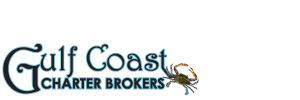A cobia tagging project is underway along Florida’s east coast. Scientists with the Fish and Wildlife Conservation Commission’s (FWC) Fish and Wildlife Research Institute are tagging cobia in order to track movement of the fish to learn more about the migration of the Gulf and Atlantic stocks. Researchers are using conventional dart tags and implanted acoustic transmitters to track mature fish. An array of acoustic receivers along the coast can detect the individual fish when they swim nearby. The movement patterns will provide more information to management to make informed decisions on the stocks and to provide a geographical location of the biological stock boundary. In addition, scientists are collecting genetic samples from tagged fish.
A total of 150 transmitters (50 each in Florida, Georgia and South Carolina) will be used for the one-year study.
“The transmitters, however, will last for up to four years allowing researchers to continue collecting information after the initial report is complete,” said Jim Whittington, FWRI Assistant Research Scientist.
The research will employ charter boat captains and recreational fishermen to assist with cobia capture, acoustic tag implantation and genetic sample collection. Researchers from NASA/Kennedy Space Center Ecological Program, the Georgia Department of Natural Resources and the South Carolina Department of Natural Resources are assisting in the project.
Cobia is a popular saltwater recreational fishery in the southeastern United States due to its ease of access, brute fighting strength and excellent culinary qualities. Although it is not illegal, scientists discourage the harvest of tagged cobia. If you catch a tagged cobia (two plastic tags should be visible on the back of the fish, one on each side) record the tag number, fork length, date and general location of the catch. Release the fish in good condition, and report it by calling 888-824-7472. If you accidentally harvest a tagged cobia, report all of the information above and return both the internal acoustic tag and plastic dart tag to:
Florida Fish and Wildlife Conservation Commission
Attn: Jim Whittington
Tequesta Field Laboratory
19100 SE Federal Highway
Tequesta, FL 33469.
Anglers can also assist by collecting fin clips from cobia caught on the east coast of Florida. For more information on what to do if you catch a tagged fish in Florida waters, visitMyFWC.com/research, click on “Saltwater” then “Angler Tag Return.” For information on cobia regulations visit MyFWC.com/fishing, click on “Saltwater Fishing” “Recreational Regulations” and "Cobia."

Leave a Reply